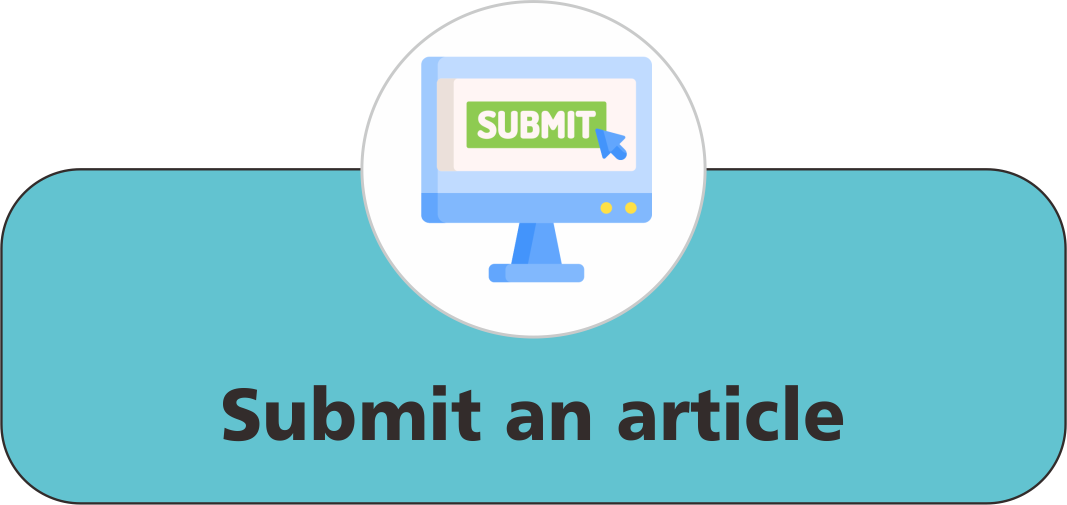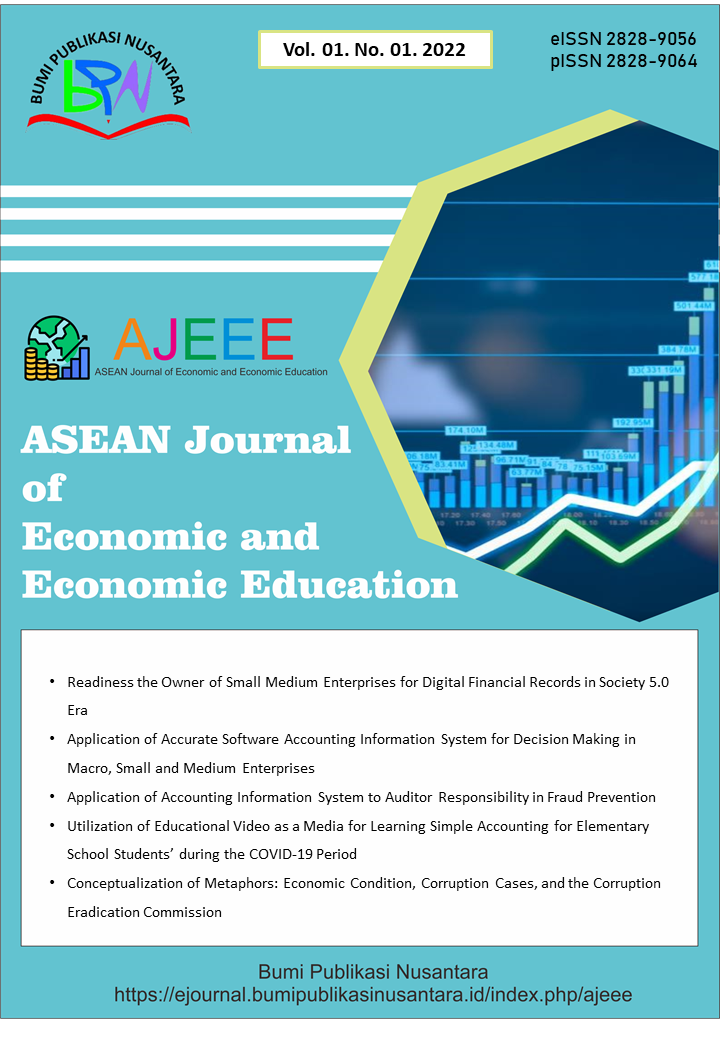Application of Accounting Information System to Auditor Responsibility in Fraud Prevention
 ), Defitri Agustini(2), Xepi Twinarti(3),
), Defitri Agustini(2), Xepi Twinarti(3),
(1) Universitas Komputer Indonesia
(2) Universitas Komputer Indonesia
(3) Universitas Komputer Indonesia
 Corresponding Author
Corresponding Author
Abstract
Keywords
References
Ahmad, A. A. B. (2019). The Moderating role of Internal Control on the Relationship between Accounting Information System and Detection of Fraud: The Case of the Jordanian Banks. Journal of Academic Research in Economics and Management Sciences, 8(1), 37-48.
Astuti, W. A., and Augustine, Y. (2022). The effect of digital technology and agility on company performance with management accounting system as mediation. International Journal of Research and Applied Technology (INJURATECH), 2(1), 11-29.
Brata, T. Y. (2021). The effect of a situational leadership style and the application of accounting information systems to fraud on village fund management in tangerang district. Dinasti International Journal of Digital Business Management, 2(5), 838-843.
Durtschi, C., Hillison, W., and Pacini, C. (2004). The effective use of Benford’s law to assist in detecting fraud in accounting data. Journal of Forensic Accounting, 5(1), 17-34.
Febrianti, R. A. M., and Herbert, A. S. N. (2022). Business analysis and product innovation to improve SMEs business performance. International Journal of Research and Applied Technology (INJURATECH), 2(1), 1-10.
Fitriawati, M., and Lestari, R. H. (2022). Designing information systems for general administration management in playgroups in North Cimahi District. International Journal of Research and Applied Technology (INJURATECH), 2(1), 54-60.
Ismanu, S., Putri, D. R., and Haris, Z. A. (2021). accounting information systems design of budget realization audit through ACL from SAIBA application: Case Study on Public University. International Journal of Economics, Management, Business, And Social Science (IJEMBIS), 1(3), 309-315.
Jasim, Y. A., and Raewf, M. B. (2020). Information technology's impact on the accounting system. Cihan University-Erbil Journal of Humanities and Social Sciences, 4(1), 50-57
Mitrović, A., and Knežević, S. (2020, September). Fraud and forensic accounting in the digital environment of accounting information systems: focus on the hotel industry. In Tourism International Scientific Conference Vrnjačka Banja-TISC, 5(1), 281-295.
Muthmainnah, M., Yulisda, D., and Ilhadi, V. (2022). Academic information system audit using cobit 5 domain APO framework. International Journal of Engineering, Science and Information Technology, 2(1), 123-130.
Purnomo, H., Fitrah, F., Maulana, R., and Pratadina, M. (2021). Implementation of information system in Indonesian traditional beverage businesses. International Journal of Informatics, Information System and Computer Engineering (INJIISCOM), 2(1), 15-24.
Puspitawati, L., Nurhasanah, A., and Khaerunnisa, A. (2021). Utilization of communication technology for business. International Journal of Informatics, Information System and Computer Engineering (INJIISCOM), 2(1), 47-54.
Rahayu, S. K. (2022). Implementation of Blockchain in Minimizing Tax Avoidance of Cryptocurrency Transaction in Indonesia. International Journal of Research and Applied Technology (INJURATECH), 2(1), 30-43.
Rizaldi, A., and Madany, Z. (2021). Impact of e-commerce in industry. International Journal of Research and Applied Technology (INJURATECH), 1(2), 59-64.
Santy, R. D., and Utomo, G. H. (2021). E-Transactions in digital era. International Journal of Research and Applied Technology (INJURATECH), 1(2), 23-30.
Soegoto, E. S., Alifia, N. T., Salsabila, T., and Mardika, C. N. (2022). The effect of using applications to facilitate medicine purchase amid the covid-19 pandemic. International Journal of Research and Applied Technology (INJURATECH), 2(1), 71-81.
Uyar, A., Gungormus, A. H., and Kuzey, C. (2017). Impact of the accounting information system on corporate governance: Evidence from Turkish non-listed companies. Australasian Accounting, Business and Finance Journal, 11(1), 9-27.
Article Metrics
Abstract View : 2282 times
: 2282 times Download : 2109 times
Download : 2109 times
Refbacks
- There are currently no refbacks.
Copyright (c) 2022 Yayasan Bumi Publikasi Nusantara

This work is licensed under a Creative Commons Attribution-ShareAlike 4.0 International License.



_publication_ethics1.png)



